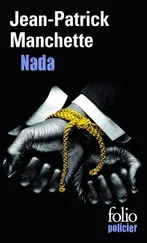Jean-Patrick Manchette - Fatale
Здесь есть возможность читать онлайн «Jean-Patrick Manchette - Fatale» весь текст электронной книги совершенно бесплатно (целиком полную версию без сокращений). В некоторых случаях можно слушать аудио, скачать через торрент в формате fb2 и присутствует краткое содержание. Год выпуска: 2011, ISBN: 2011, Издательство: New York Review Books, Жанр: Криминальный детектив, на английском языке. Описание произведения, (предисловие) а так же отзывы посетителей доступны на портале библиотеки ЛибКат.
- Название:Fatale
- Автор:
- Издательство:New York Review Books
- Жанр:
- Год:2011
- ISBN:978-1-59017-572-9
- Рейтинг книги:5 / 5. Голосов: 1
-
Избранное:Добавить в избранное
- Отзывы:
-
Ваша оценка:
- 100
- 1
- 2
- 3
- 4
- 5
Fatale: краткое содержание, описание и аннотация
Предлагаем к чтению аннотацию, описание, краткое содержание или предисловие (зависит от того, что написал сам автор книги «Fatale»). Если вы не нашли необходимую информацию о книге — напишите в комментариях, мы постараемся отыскать её.
Fatale — читать онлайн бесплатно полную книгу (весь текст) целиком
Ниже представлен текст книги, разбитый по страницам. Система сохранения места последней прочитанной страницы, позволяет с удобством читать онлайн бесплатно книгу «Fatale», без необходимости каждый раз заново искать на чём Вы остановились. Поставьте закладку, и сможете в любой момент перейти на страницу, на которой закончили чтение.
Интервал:
Закладка:
“Mama?”
The woman did not react. Aimée went around the chair and stood in front of her. The mother started, then closed her mouth and pursed her lips. She was a woman of about sixty, frail, with white hair pulled back and a pale puffy face with heavy eyelids. Her eyes narrowed. She was wearing a black cotton apron quadrilled by faint white pinstripes, a black woolen shawl, slate-gray cotton socks rumpled up at her ankles, and men’s black shoes. She had positioned herself between a row of potatoes and a lettuce patch.
“Don’t you have your hearing aid?” asked Aimée, articulating slowly so that the woman could lip-read the syllables; and when no reply, no reaction was forthcoming, she shouted, “Where is your gizmo, for God’s sake?”
“I don’t know,” answered the mother. “Don’t swear. So you came to pay me a visit. You scared me.”
“I came by to settle some things up,” said Aimée, calmer now. “I’ve told Maître Queuille to increase your monthly payment. You shouldn’t stay here alone… you should get someone to be with you. I’ve told you before.”
“Yes,” said the mother.
Aimée delved in her bag.
“I brought you some tobacco and a present.”
She handed the mother some packages of shag and a parcel tied with a ribbon. The mother slowly unwrapped the parcel and extracted a mauve cotton blouse with a motif of tiny white flowers. She held it up before her with both hands, shaking it slightly to unfold it. Then she refolded it distractedly, put it on her knees, and placed her hands over it.
“It’s very pretty,” she said, staring down into the valley.
Aimée nibbled at the side of her thumb without realizing it. She went back around the chair and stood still for a moment behind her mother’s back.
“You bitch!” she said. “I hate you. God, I wish you would die!”
“Are you doing all right?” asked the mother. “What about your job? Your husband?”
She did not turn to see whether Aimée replied.
“In a little while,” she went on, “the Father will be coming over. I’ll make coffee. You could stay if you like and drink coffee with us.”
“I have to leave,” said Aimée.
She turned away and headed for the sandy courtyard and the little metal door.
“But,” said the mother, “perhaps you have to leave.”
Aimée reached Paris just as day was breaking. With time to kill before the Bléville train departed, she went for a walk. Near the Place du Châtelet, she was accosted by a broad-shouldered man in a chiné overcoat; his wavy hair glistened with hairspray. He followed her for a while. She accepted a light from him.
“Wouldn’t you like to have a drink somewhere?” asked the man. “We can go to my place.”
With her cigarette between her fingers, Aimée threw her head back and laughed.
“Why, you little devil!” said the man, quite pleased.
He grabbed Aimée’s wrist with one hand, her waist with the other, and tried to kiss her on the neck. Aimée pulled away and took a step backwards, then swiftly came forward again and slapped the man. He reddened and reciprocated.
“So that’s it, you filthy lesbo!” he cried.
For a few moments the two kept on slapping each other across the face. Then Aimée grew calm. Taking a very rapid half step back, she struck the man just under the nose with the side of her hand. He reeled back, staggered, and fell to the ground on his rear. He was pressing both hands to his snout.
“Oo! Oo!” he kept crying. “Ouch! Ouch! Ouch!”
His eyes were filling with tears. Aimée walked away.
In the Rue de Rivoli she took a taxi, retrieved her bags from the left-luggage office, and changed stations. There were still two long hours to wait before her train left, and she spent them in a brasserie. Then at last she was on her way back to Bléville.
9
On the day of her return, Aimée slept for a good many hours. Eventually she picked up the newspaper she had bought the day before, cut out the article concerning the death of Roucart, and filed it along with other clippings referring to other deaths: a factory owner in Bordeaux, five months earlier, asphyxiated on account of a faulty heater; a Parisian doctor drowned at La Baule in the early summer; and several more. Aimée used the remainder of the newspaper to line the kitchen trash can. That evening she ate no dinner. Using a little machine, she made copies of twenty or so keys that she had taken from the Bléville station luggage lockers. This was the second time she had copied keys in Bléville. By the time she finished, around ten o’clock, she had duplicates of keys to all the station’s self-service luggage lockers.
“One of your neighbors has complained, Madame,” said the girl at the reception desk the next morning as she was leaving. “Last night late, there was an electrical sound coming from your room.”
“An electrical sound? Ah, yes,” replied Aimée. “My hair dryer. It won’t happen again.”
“I am so glad you were able to come,” said Lindquist later that day, in midafternoon. “But this is nothing really special. Just wait till summer, when I get you acquainted with our village festivals!”
Aimée nodded her head as though intrigued. Unusually, it was sunny and dry. The sea air was fresh and bracing, but people were well wrapped up, wearing scarves. In front of a main house two long tables with white tablecloths had been set up and laden with masses of hors d’oeuvres, cold cuts, and pastries, as well as a good many corked liter bottles of cider. The guests strolled on pastureland planted with apple trees. Variegated cattle could be seen in the distance. Once again Bléville’s elite were assembled. The occasion was the baptism of a new addition to a filthy-rich family of graziers. Aimée had not been invited, but Lindquist had taken it upon himself to bring her.
“There is an especially beguiling game they play,” the realtor was saying. “Young girls from the region, pretty ones preferably, are put in a paddock and blindfolded. Then a greased piglet is released among them. The girls are supposed to catch it if they can. But of course it’s very hard with the slippery animal. The little pig squeals, and the little girls squeal too. It’s quite captivating.”
“I’m sure it is.”
“And speaking of piglets,” Lindquist exclaimed, “just look at that one!” He pointed to a six- or eight-month-old mite in a countrywoman’s lap.
The woman was forcing baby food into the mouth of the red-faced tot. The tot was shrieking at the top of its lungs and struggling. Suddenly it burped loudly and threw up everything it had swallowed.
“You disgusting little brat!” cried the woman furiously.
“Not to mention the egg-and-spoon race,” Lindquist was saying now. “And the belote tournaments! For sheer entertainment you can’t beat it!”
“I can hardly wait, dear Maître Lindquist,” replied Aimée, who was watching Sinistrat and Mme Lenverguez slipping away towards the barns on the far side of the crowd.
By this time the baby was dead, though its mother had not yet noticed the fact. Mme Lenverguez and Sinistrat disappeared. Lindquist and Aimée went on chatting for a few minutes, bumping into and greeting the Tobies, the Moutets, and various other guests. Sinistrat’s wife was sitting on a chair with her back to the wall of the main house and rubbing her ear morosely. All of a sudden, from the middle of the pasture, the countrywoman whose baby had vomited set up a mad, endless wailing and began beating herself about the head with her fists.
A great deal of commotion and shouting ensued. Some people crowded around the dead baby and the wailing mother. Others drew away as quickly as they could, vociferating, falling over their feet, waving their arms, and shaking their heads. Cries for help went up: “Sinistrat!” “Doctor!” After a moment Sinistrat arrived from the direction of the barns and pushed his way through the people. Aimée noticed that he had misbuttoned his fly. He undid the clothing of the tiny corpse, sounded the chest, and attempted mouth-to-mouth resuscitation, but he could not revive the child.
Читать дальшеИнтервал:
Закладка:
Похожие книги на «Fatale»
Представляем Вашему вниманию похожие книги на «Fatale» списком для выбора. Мы отобрали схожую по названию и смыслу литературу в надежде предоставить читателям больше вариантов отыскать новые, интересные, ещё непрочитанные произведения.
Обсуждение, отзывы о книге «Fatale» и просто собственные мнения читателей. Оставьте ваши комментарии, напишите, что Вы думаете о произведении, его смысле или главных героях. Укажите что конкретно понравилось, а что нет, и почему Вы так считаете.












